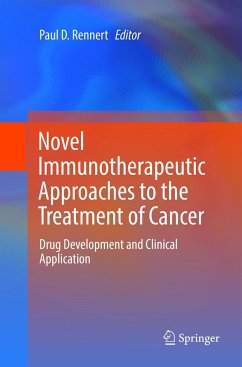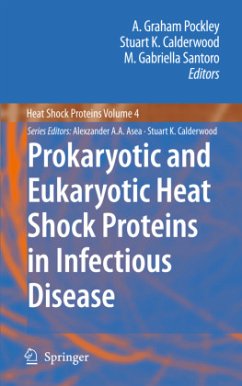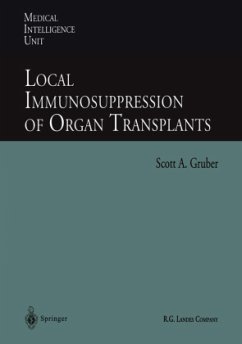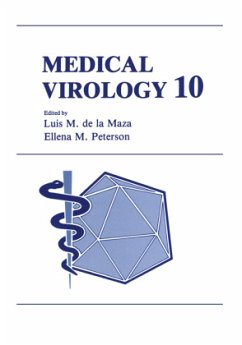
Novel Chemotherapeutic Agents: Preactivation in the Treatment of Cancer and AIDS

PAYBACK Punkte
39 °P sammeln!
Chemotherapeutic Drugs and Oncogenes . . . . . . . . . . . . . . . . . . . . . . . . . . . . . . . . . . . . . . . . . 187 Effect of pM C540 on c-myc Oncogene in Leukemia . . . . . . . . . . . . . . . . . . . . . . . . . 188 Down Regulation of c-myc by pMC540 . . . . . . . . . . . . . . . . . . . . . . . . . . . . . . . . . . . . . . . . . . . . 189 Effect of pMC540 on c-myc Proteins . . . . . . . . . . . . . . . . . . . . . . . . . . . . . . . . . . . . . . . . . . . . . . . . 192 Tumorigenesis of pMC540 Treated but Living L1210 Leukemia Cells . . . . . . . . . . . . . . . . . . . . . . . . ....
Chemotherapeutic Drugs and Oncogenes . . . . . . . . . . . . . . . . . . . . . . . . . . . . . . . . . . . . . . . . . 187 Effect of pM C540 on c-myc Oncogene in Leukemia . . . . . . . . . . . . . . . . . . . . . . . . . 188 Down Regulation of c-myc by pMC540 . . . . . . . . . . . . . . . . . . . . . . . . . . . . . . . . . . . . . . . . . . . . 189 Effect of pMC540 on c-myc Proteins . . . . . . . . . . . . . . . . . . . . . . . . . . . . . . . . . . . . . . . . . . . . . . . . 192 Tumorigenesis of pMC540 Treated but Living L1210 Leukemia Cells . . . . . . . . . . . . . . . . . . . . . . . . . . . . . . . . . . . . . . . . . . . . . . . . . . . . . . . . . . . . . . . . . . . 195 Stimulation ofTopoisomerase 11-Induced Cleavage Sites in a c-myc Oncogene by pMC540 . . . . . . . . . . . . . . . . . . . . . . . . . . . . . . . . . . . . . . . . . . . . . . . . . . 197 Epilogue . . . . . . . . . . . . . . . . . . . . . . . . . . . . . . . . . . . . . . . . . . . . . . . . . . . . . . . . . . . . . . . . . . . . . . . . . . . . . . . . . . . . . . . . . 203 Index . . . . . . . . . . . . . . . . . . . . . . . . . . . . . . . . . . . . . . . . . . . . . . . . . . . . . . . . . . . . . . . . . . . . . . . . . . . . . . . . . . . . . . . . . . . . . . 209 =======================PREFACE ========================= his book describes the discovery of a new technology termed "preactiva T tion. " Preactivation is a process by which photoactive compounds are first exposed to light and thereby converted into new potential drugs that function independent of light. Basic and preclinical studies have revealed the dramatic therapeutic potential of some of these compounds. Thus, preactivation can be used to convert thousands of existing photoactive compounds into new poten tial anticancer and antiviral agents. Although the process of preactivation uses a principle of photodynamic therapy, the resulting products are strictly chemotherapeutic in nature, in that they function independent of light. Once identified, the photoproducts gener ated via the process of preactivation can be chemically synthesized. Therapeutic use of light energy by itself or as an activating agent for light reactive chemicals dates back to ancient Egypt. Since those times, one funda mental principle of photodynamic therapy has remained constant: light energy is always applied after the light-reactive chemical or photoactive agent has arrived at the target.












